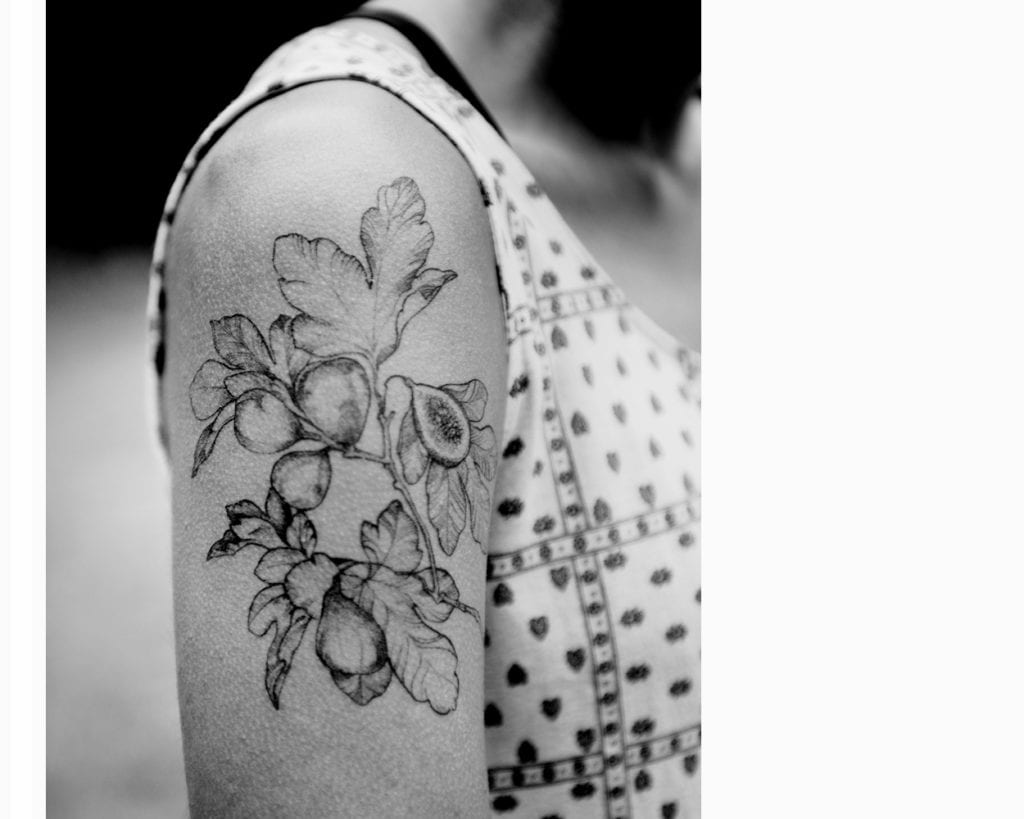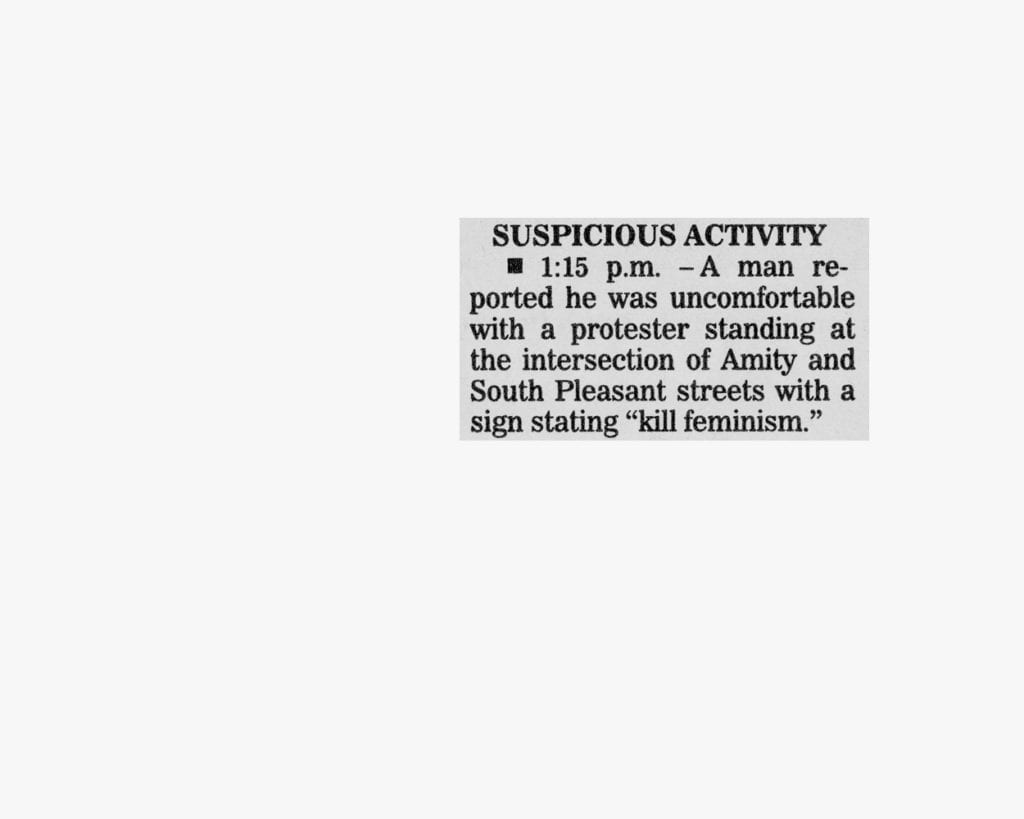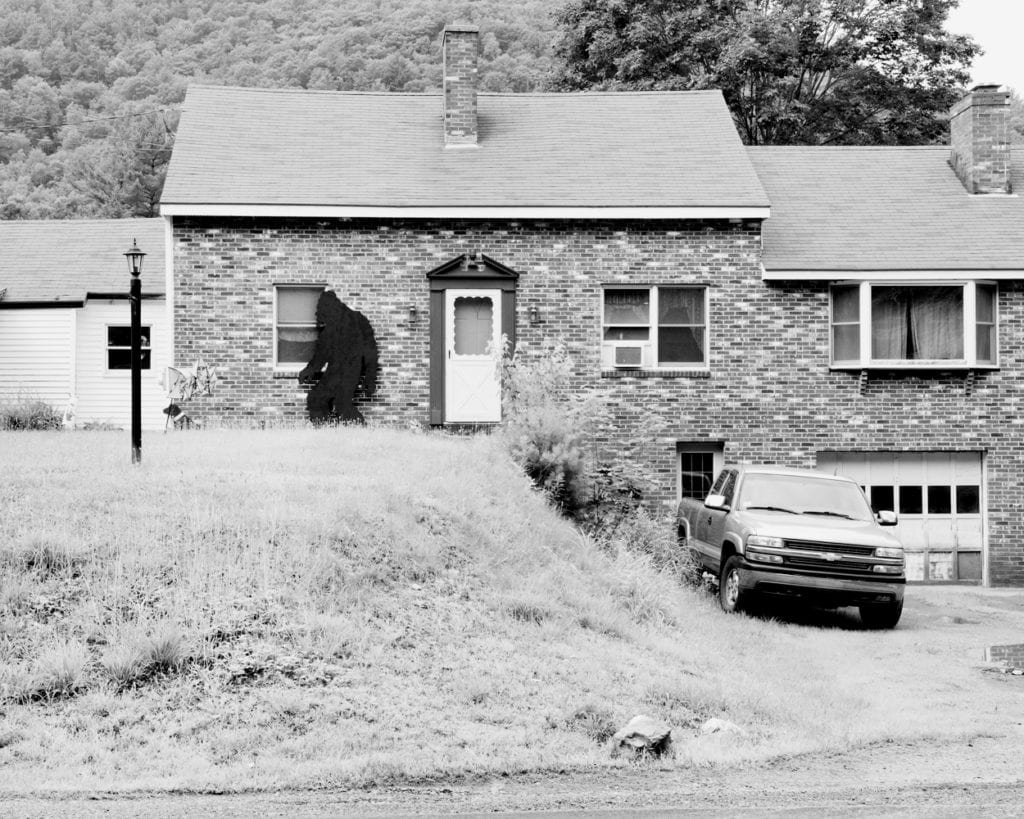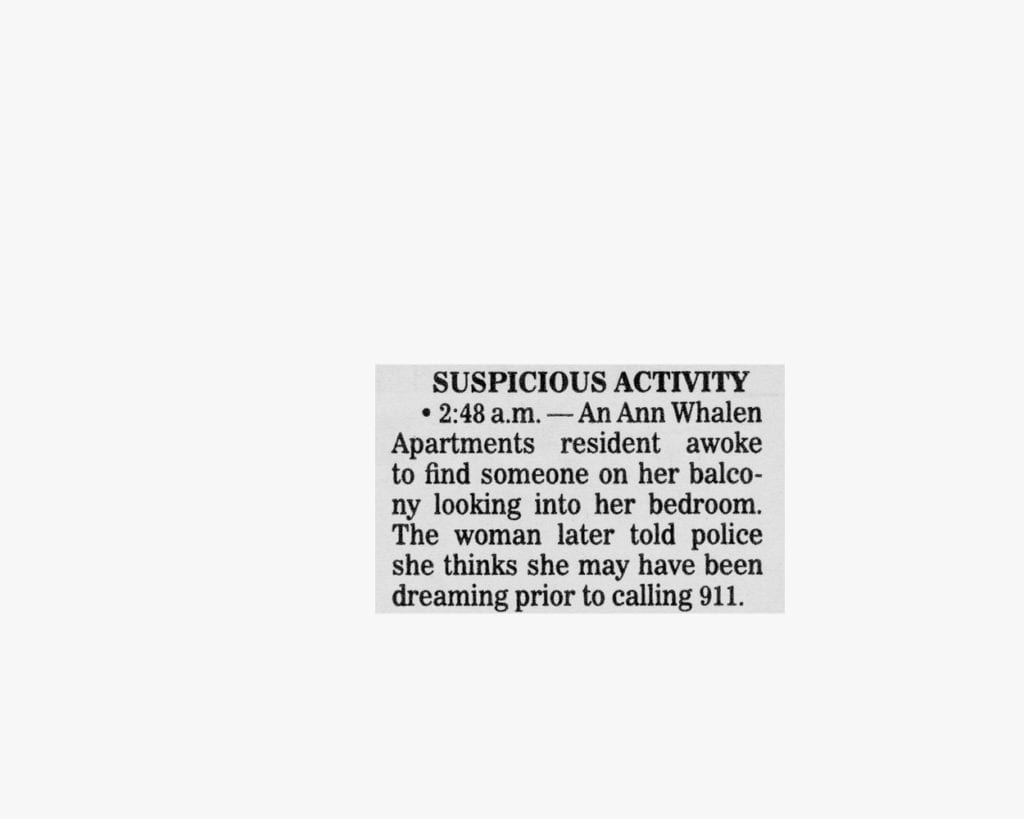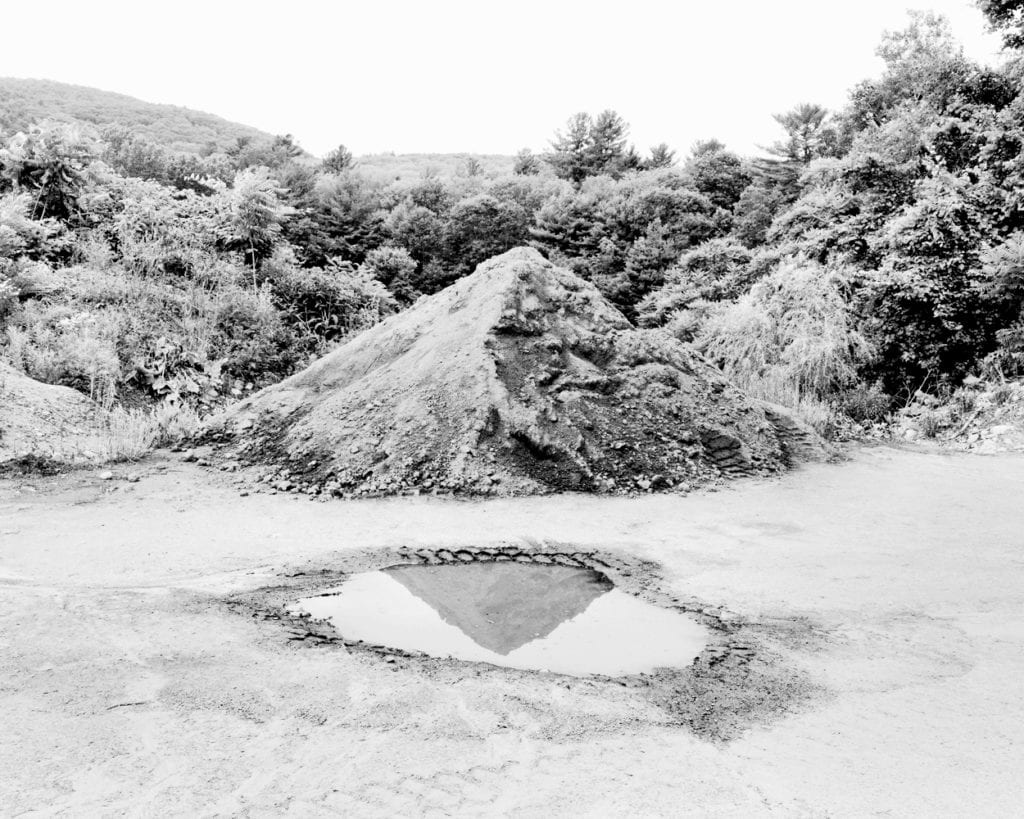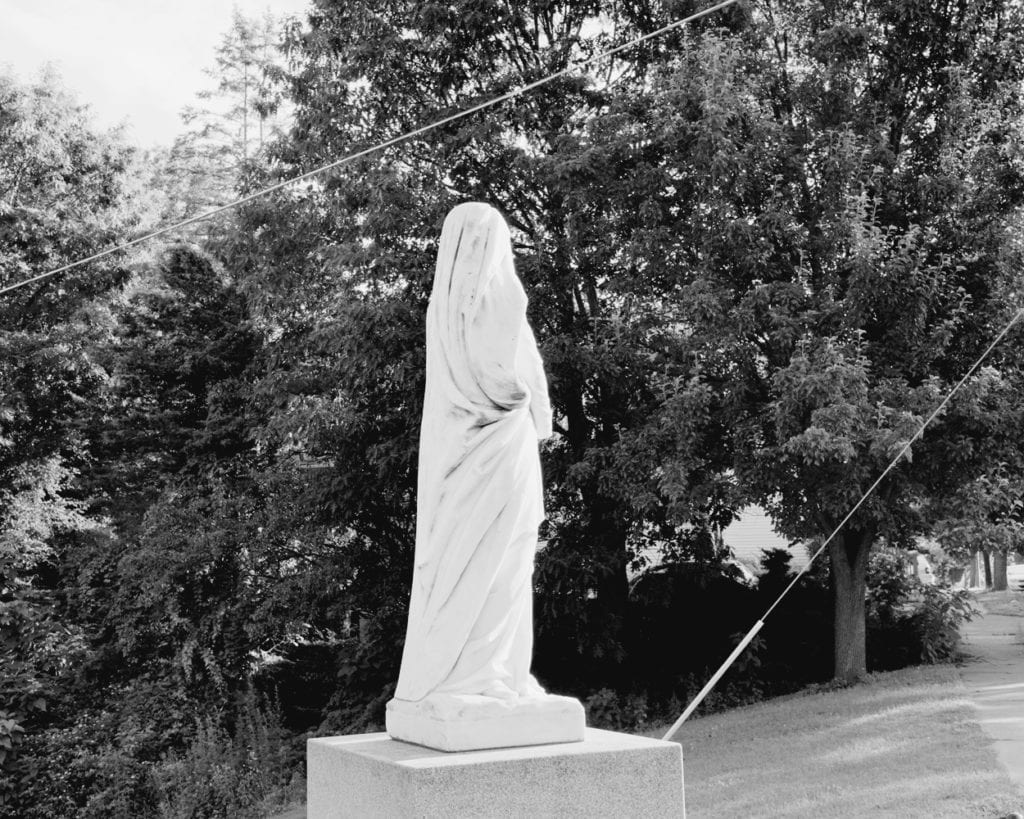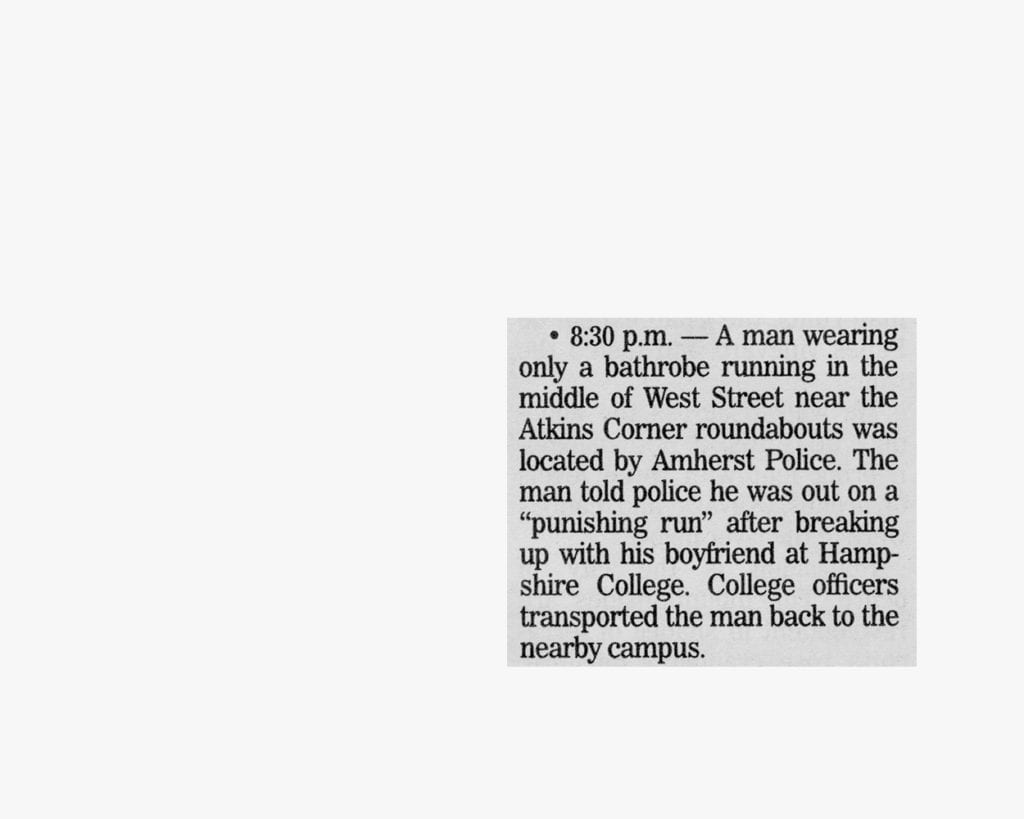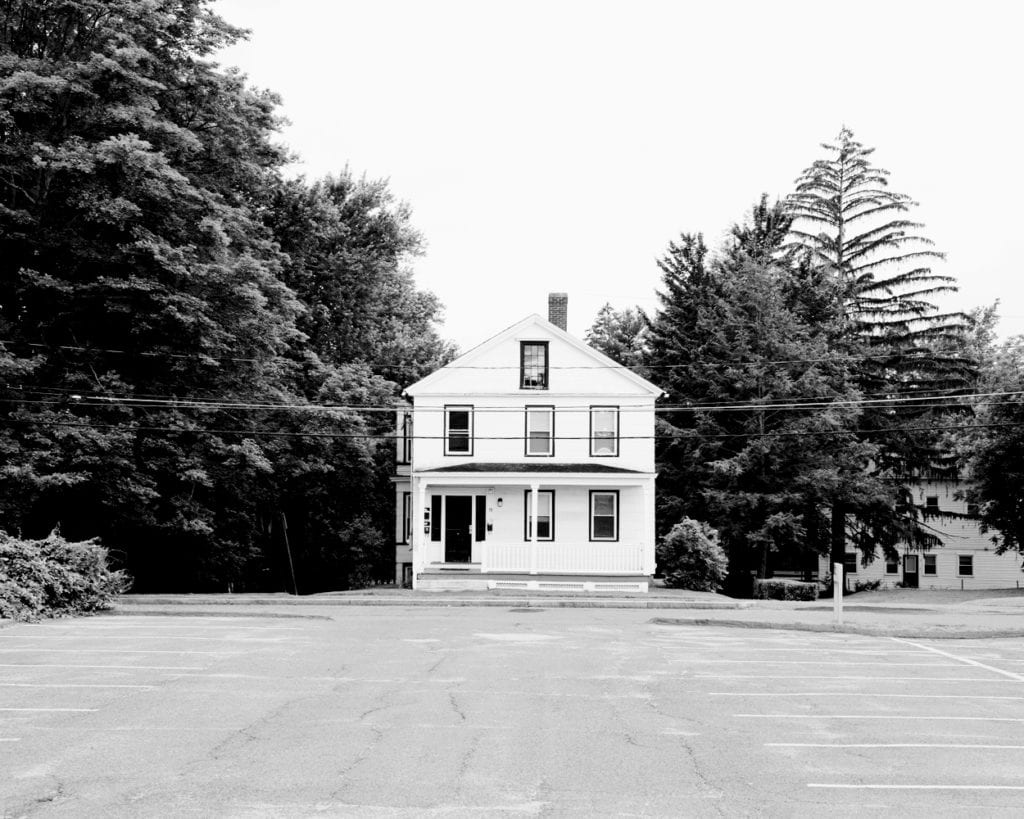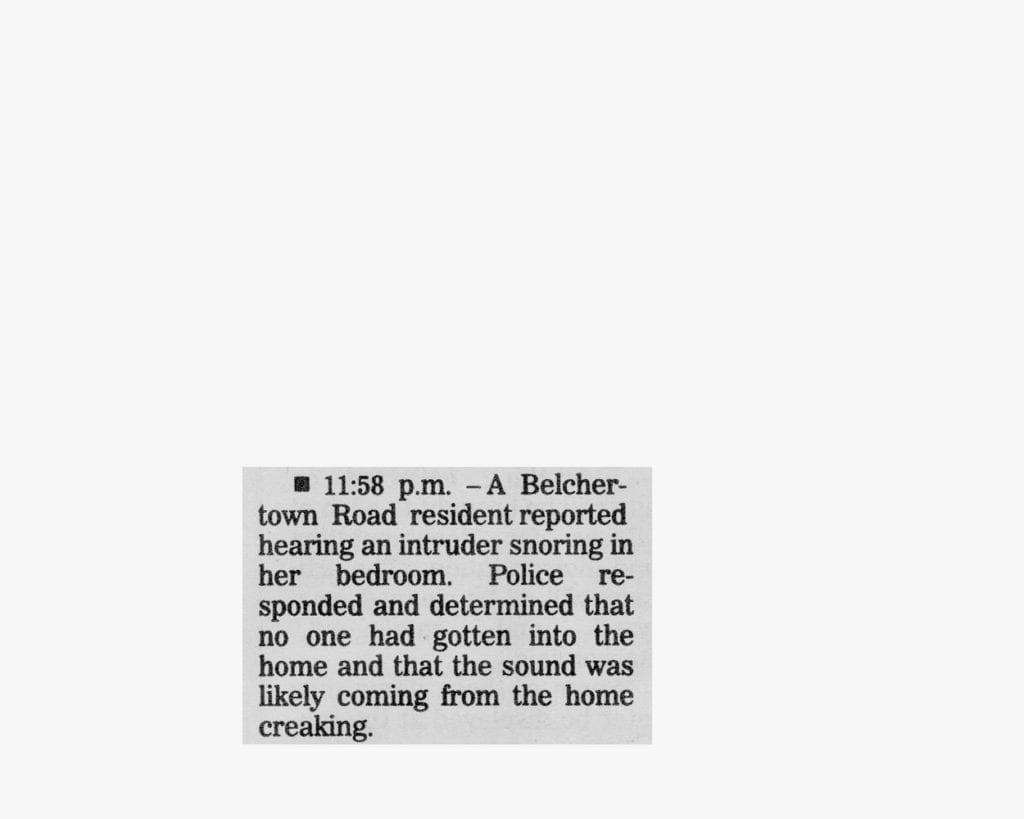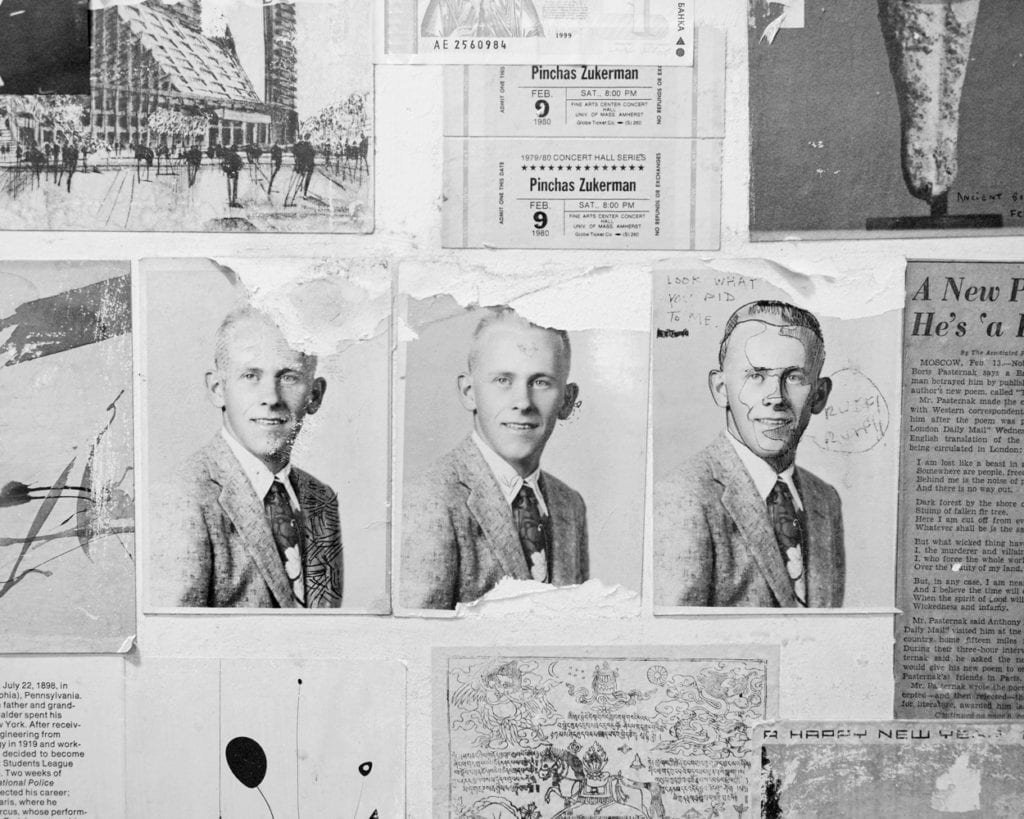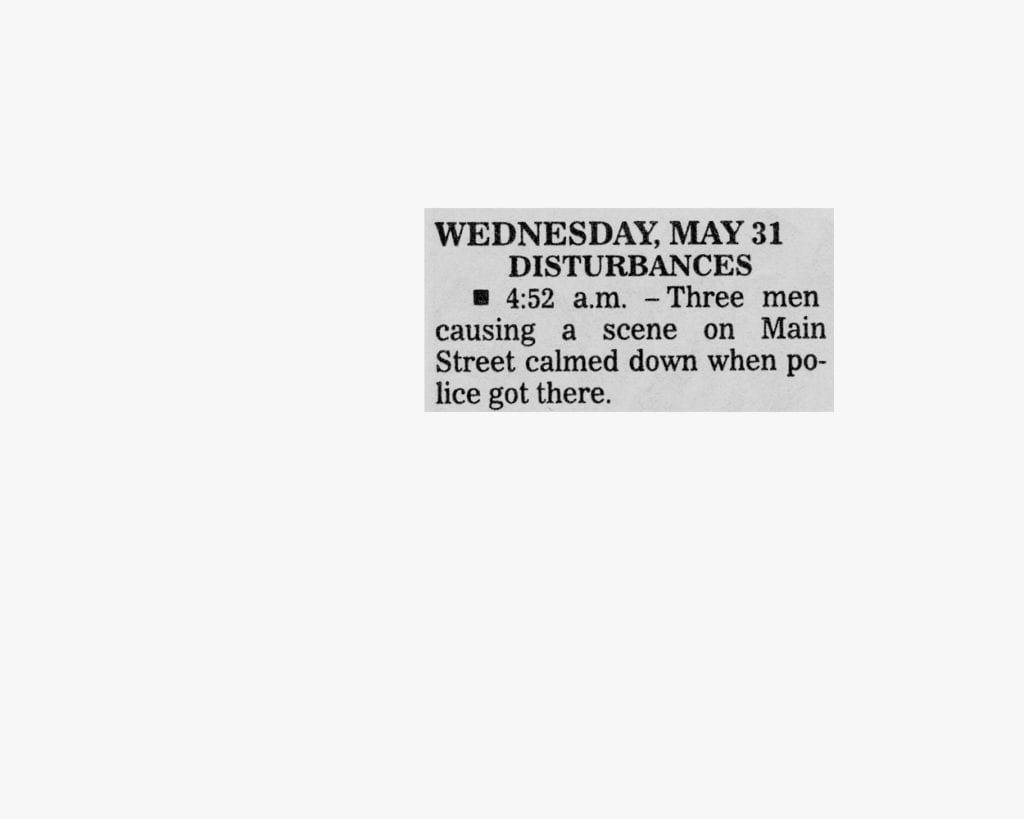Think of a horror or thriller, and you may think of the happy first half hour or so when everything seems to be going just fine. The Stepford Wives’ town initially seems like it’s perfect; The Vanishing opens with a couple going on a holiday. It’s only later that the tone takes a turn for the worse, before descending into something more substantially scary. That shift is something the residents of Amherst, Massachusetts seemingly live in fear of, because – while on the face of it their small town is an idyll – they’re constantly on the alert.
“7.32pm – Residents at The Boulders complained about a man yelling out the window in a foreign language,” reads a police report published in the local paper, the Amherst Bulletin. “The man told police he was just stating his excitement for the dinner he was about to eat.” “5.53pm – A woman called police after being approach by a photographer in downtown who asked if he could take pictures of her feet,” another reads. “The photographer was not located.”
The police reports were gathered by photographer, curator and editor Aaron Schuman – or rather by his father, who lives in the area. Schuman Jnr spotted the reports in the local paper four years ago when he went back to Amherst to see his family; amused by their slightly ludicrous goofiness, he asked his father to collect them and send them back to him in England, “partly for my own amusement, but also because I thought there might be the potential to do something with them”.
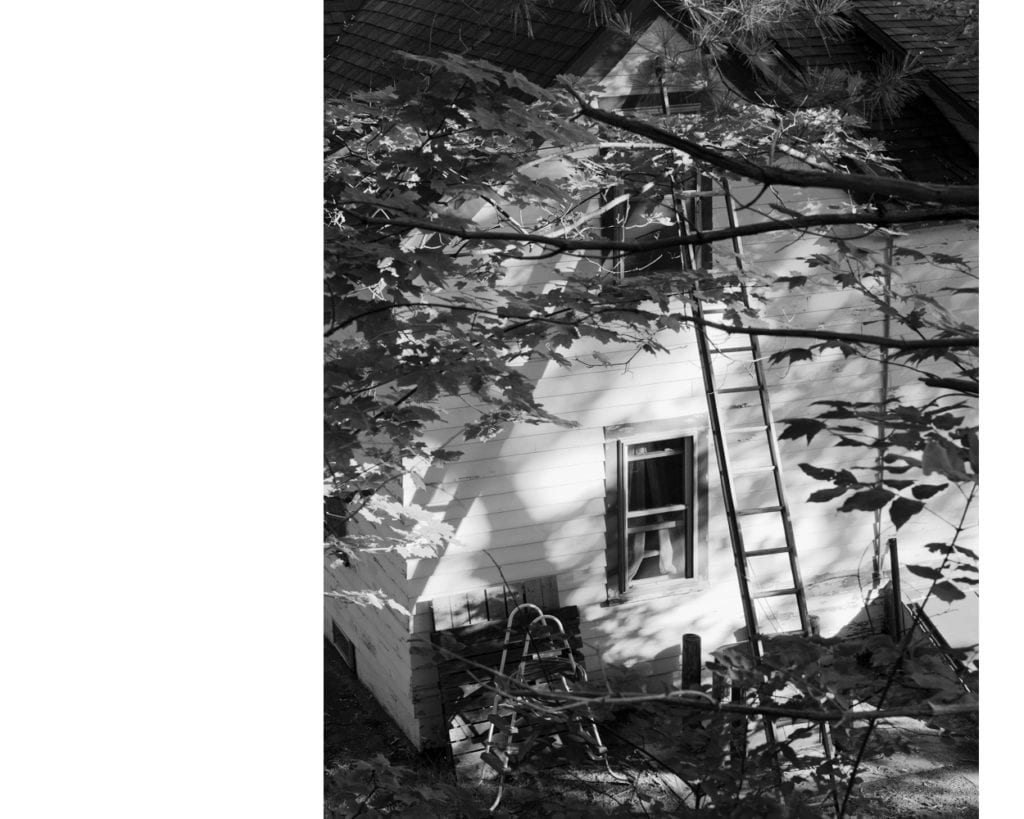
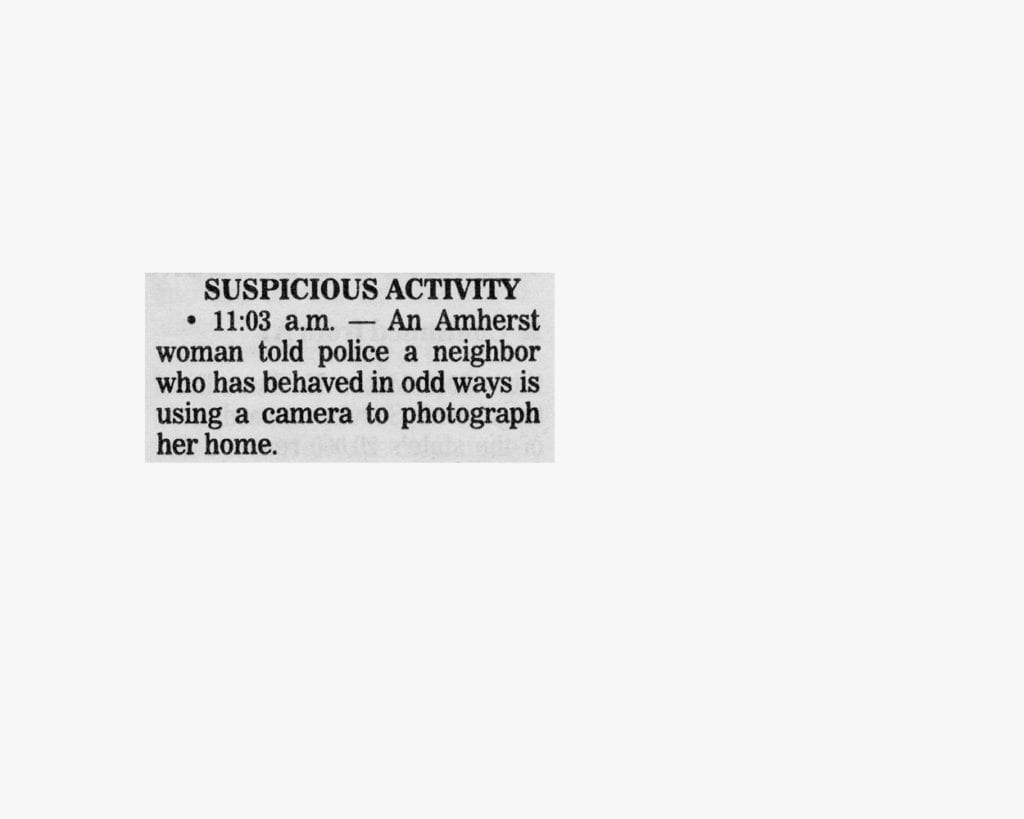
“It’s a quiet little part of New England, and New England is already pretty tame compared to other parts of the US,” Schuman explains. “In general, the people who live there are pretty left-wing, well-educated, and reasonably well off, so the town itself, on the surface of things at least, is an incredibly safe place. There are a lot of leafy streets and nice houses. But nevertheless, as these police reports indicate, there seems to be a certain, lingering sense of paranoia underneath it all.
“To me, the reports are very funny, but they’re also somewhat sinister. It’s not just that the police are watching over everything – it’s that the people themselves are so suspicious of even the tiniest thing, and call the police for the smallest of reasons; it’s almost like the community is complicit in constantly being observed. But I should also say that there are probably 20-30 police reports per newspaper, and only one or two of them are this hilarious or unnerving.”
By 2017 Schuman had amassed a hefty collection of the reports and, heading back to Amherst when his father’s health took a turn for the worse, decided to do something with them. Starting to take photographs of the area, he was initially unsure how to match the reports and his images, until he took a trip to the Emily Dickinson Museum. A resident of Amherst until her death in 1886, Dickinson is known for her poetry, and is often celebrated for her striking use of “slant rhyme”.
As Schuman quotes: “Slant rhyme (n) is a rhyme in which there is close but not exact correspondence of sounds, often using assonance or consonance, as in ‘time and ‘ran’, ‘dry’ and ‘rise’, ‘grown’ and ‘moon’, or ‘day’ and ‘eternity’. It’s generally used in poetry to give variations to and an inharmonious feeling in a rhyme scheme. It is also known as an approximate, analyzed, inexact, imperfect, lazy, near, off, oblique, suspended or sprung rhyme.”
“Tell all the Truth but tell it slant – Success in Circuit lies,” wrote Emily Dickinson herself.

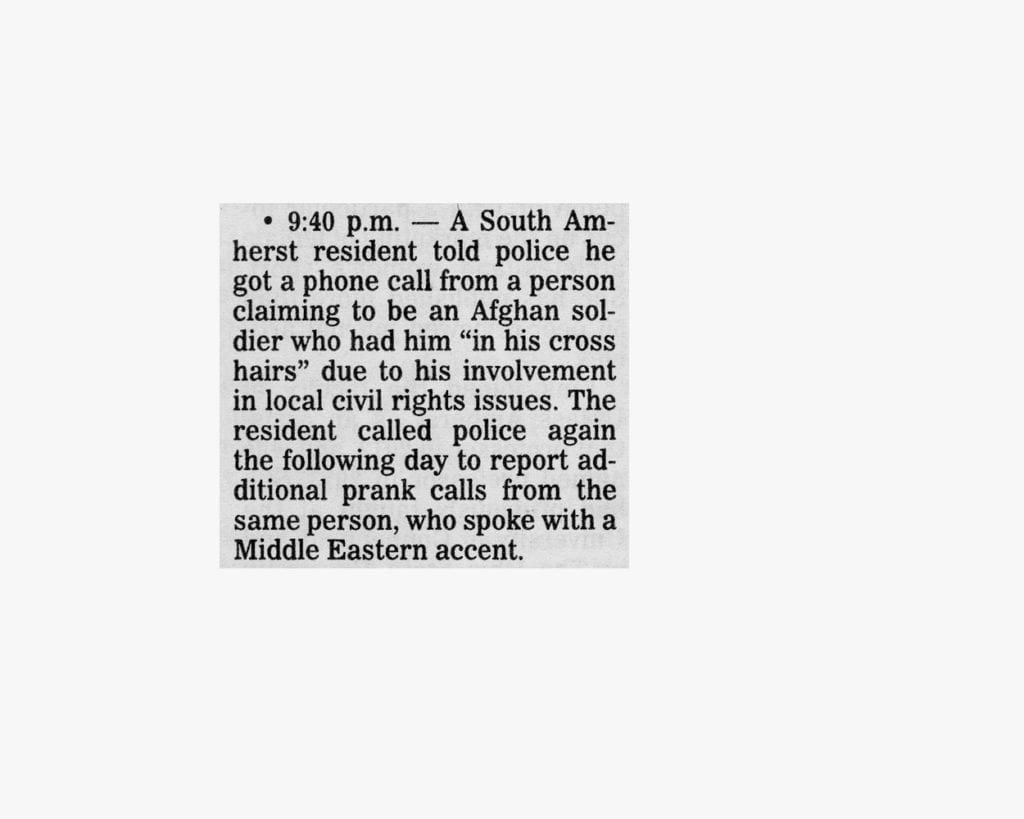
Inspired by this oblique approach, Schuman decided to loosen up his pairings – matching suitable shots with the police reports but not slavishly seeking out exact correspondences. The result is often humorous, sometimes thought-provoking, and often, like Dickinson’s poetry, suggestive of a wider truth lurking just below the surface. The report about the foot photographer is matched with a surreal photograph of a giant foot, for example; the man shouting about his dinner with a No Trespassing sign – which includes an illustration of an All-American family cooking a barbecue.
“When I started reading them in 2013 the reports just seemed funny, but when I reread them now, I realise how many focus on ‘strangers’, or people with ‘foreign accents’,” says Schuman. “With the election of Trump, and the current political situation in the US, the rise of ‘fake news’, and so on…all of these things put an entirely new spin on them.”
In fact the whole project can be read in terms of facts and the limits of reporting them, be it in poetry, in police reports, in photographs, or in the correspondences that emerge between all three. One of the things that drew Schuman to the police reports was the way in which they were written, he says “in a really straight, very deadpan manner, without any irony or judgement”; yet in singling out the few funny police reports from the wider context of the newspapers, he skews their relative importance.
Interestingly, many of the police reports focus on photography, with those calling the police often complaining about people shooting them without permission. With the seemingly peaceful residents of Amherst happy to call the police on their neighbours, it seems they’re also particularly sensitive to being put under surveillance themselves.
“Throughout the project I’ve always been slightly paranoid [when photographing] that the police will turn up any minute, so I’m always looking over my shoulder as I’m working,” says Schuman. “Although a little part of me does hope that one day I might become a police report myself.”
www.aaronschuman.com Slant by Aaron Schuman will be published by Mack Books in April, priced £30. The book is now available to pre-order https://mackbooks.co.uk/products/slant-br-aaron-schuman
